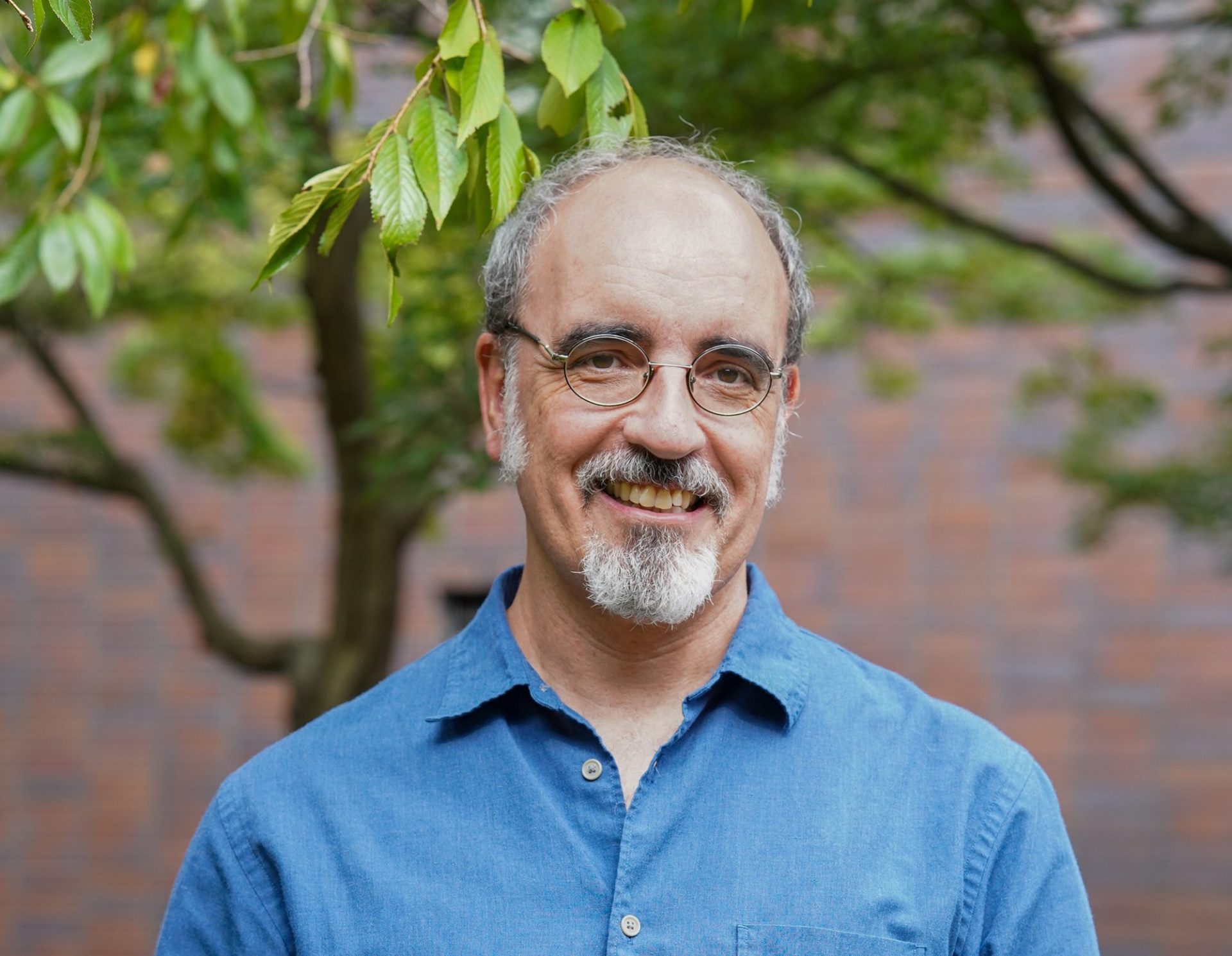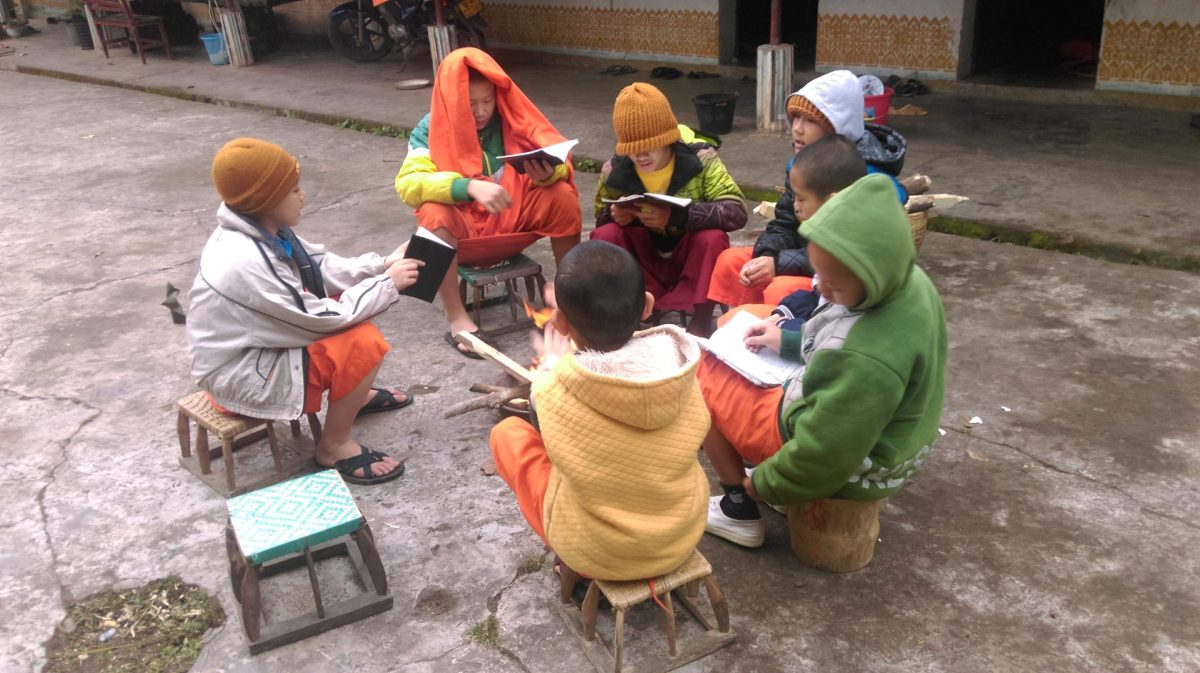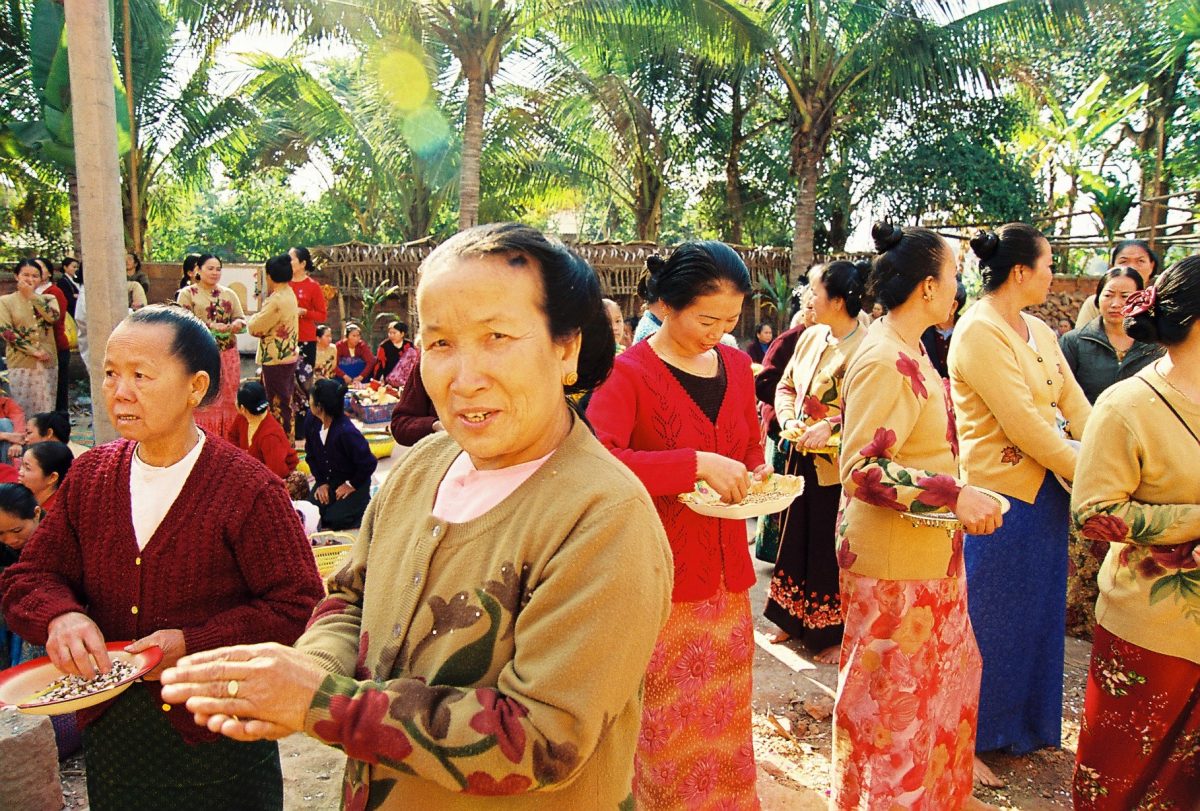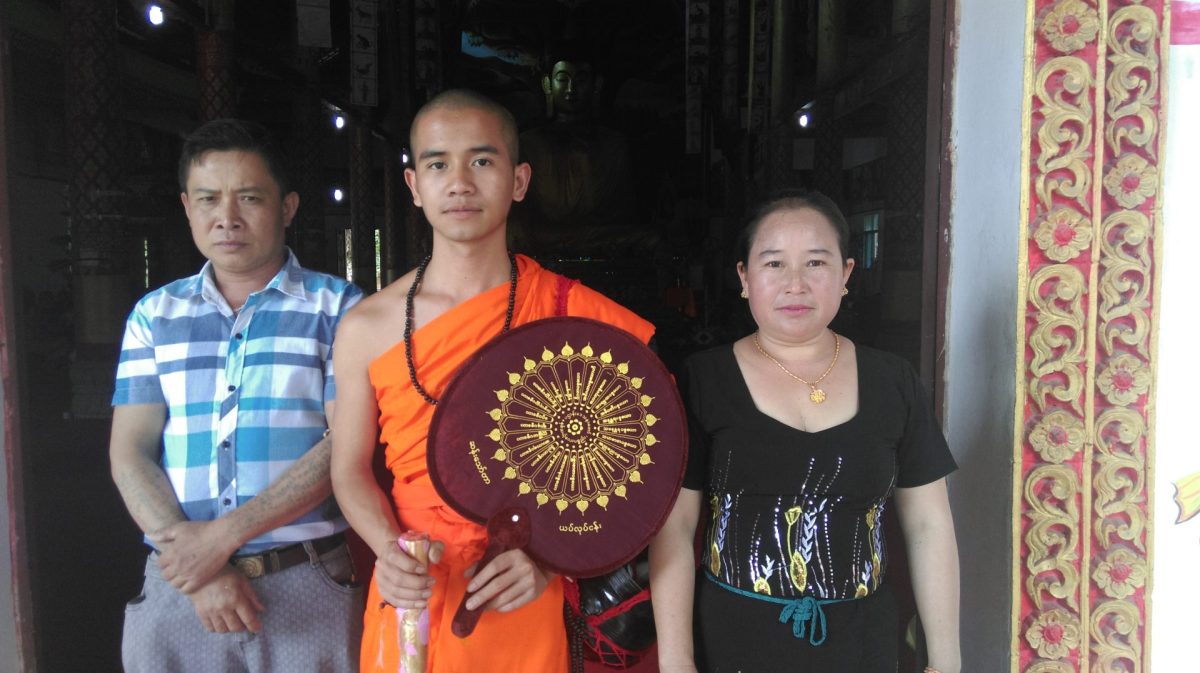Roger Casas Ruiz

VISITOR’S VOICE
Interview with Roger Casas Ruiz
Anthropology
CSEAS Visiting Research Scholar: September to November 2024
WHAT ARE YOUR…?
FAVORITE THINGS
Learning languages
Being able to talk to locals anywhere in their own language is a most exhilarating experience (not that I am necessarily very good at it though!).
Reading literature and watching films
Immersing yourself in fiction is the best way to broaden your views and open your mind, as well as to (unconsciously) train your writing skills.
Listening to music and singing
I love music, and although I cannot play any instrument, my ability to sing shamelessly in public has opened many doors with the music-loving Tai Lue.
Interview
Finding the Right People and Staying with Them
01
Please tell us about your research.
Most of my research until now has been concerned with Buddhist practice among the Tai Lue of Sipsong Panna, an ethnic minority in Yunnan province of China. I first encountered this region while traveling across China and Southeast Asia as a tourist more than 20 years ago. After learning that Buddhism in Sipsong Panna is very similar to the Theravada tradition of Southeast Asia, I decided to spend time there and learn more about the place when I was still a Chinese-language student in Beijing. That’s how it all began.
I believe researching a minority group like the Tai Lue is important for two reasons. First, like many minority groups in China, the Tai Lue are usually left out of accounts on China’s culture and society. Studying minority cultures should therefore help qualify and enrich such accounts. A second reason, connected to the first, is that, due to the peculiar contemporary history of China, until very recently, Sipsong Panna remained very isolated from the reformist and modernist movements that transformed Buddhist practices in countries like Thailand, Myanmar, or Cambodia. Tai Lue Buddhism has thus managed to maintain a sort of “pre-modern” idiosyncrasy that can provide researchers with insights, especially when compared to mainstream traditions in the countries just mentioned.

Moeng La, Sipsong Panna, February 2016.
02
Can you share with us an episode about any influential people, things, and places you have encountered whilst doing your research?
The main influence on my work, and probably on my life in general, has been that of Sipsong Panna as a place and of the Tai Lue people in particular. I have no doubt about this. From my very first visit, the Tai Lue were very welcoming and warm toward me, and they have helped with my research every time I needed their help. As Sipsong Panna is continually transforming, it never ceases to provide topics for research. But the main reason why I keep going back there is the hospitality of my Tai Lue friends. As they say, the debt I have with them cannot be repaid in one life!

03
How do you overcome the difficulties in putting together the results of your research into a research paper or book?
Selecting what is and what is not relevant for your research from your fieldwork notes and then, based on that relevant data, putting together a convincing narrative that is accessible not only to academic colleagues, but to anyone interested in your work, is an incredibly challenging task–and that is what makes it so enjoyable too! Maybe because I am one of those anthropologists who believes that our discipline is closer to art than to science, I basically see “writing culture” as a creative process. I have mentioned how much I enjoy movies, books, and music, and I like to think that everything that I absorb from those “contemplative” activities is then condensed in the process of writing academic texts.
04
What is your ideal image of a researcher, and do you have any advice for those who aim to become researchers?
I will try to answer both questions by answering only the second one. I would say that first of all, before starting a PhD, you have to make sure that you are totally invested in your research topic. If you choose a subject in which you are not really interested, you may regret it mid-way into your project.
Apart from this, I believe it is very important for anthropologists in particular to maintain a commitment to the place and the people among whom they do research once fieldwork has been completed–even if this may be difficult due to academic obligations. In my experience, people in “your” fieldwork site appreciate that commitment enormously, and this in turn facilitates and enriches your research over and over.
05
What are your future ambitions as a scholar?
At this point my main ambition is simply to be able to continue doing fieldwork among the Tai Lue, perhaps occasionally expanding my research to more general and abstract topics such as ethnicity in China, or Buddhism and its perception in and outside Asia. Although I do not rule out the possibility of obtaining a teaching or researching position in an academic institution, my priority is to have time and the possibility to do fieldwork and to reflect on ongoing cultural and social transformations in Sipsong Panna, and beyond.

Moeng Long, Sipsong Panna, April 2015.
06
Why did you choose CSEAS, or what is your expectation here?
As I could see for myself in previous visits to CSEAS, because of its well-equipped facilities, rich library, and collegial staff, the Center is a first-class site for specialists working on Southeast Asia all over the world. In my case, staying at CSEAS allows for the possibility of keeping in touch with Japanese researchers working specifically on the Upper Mekong region not only in academic institutions in Kyoto, but also in several other places across Japan, many of whom I have collaborated with in the past. Apart from getting in touch with old and new colleagues and participating in the activities organized by the Center, during my stay in Kyoto, I also expect to take advantage of the perfect environment offered for academic writing by CSEAS and by the city itself to make significant progress on the manuscript of what will hopefully be my second monograph.
(November 2024)
* The views expressed herein are those of the authors and do not necessarily reflect the views of the Center for Southeast Asian Studies, Kyoto University.
Roger Casas is an independent anthropologist. After obtaining a BA in History in Spain, in 2001 he moved to China to work as a language teacher. Since 2004, he has lived and conducted research among the Tai Lue in Sipsong Panna, southwest China, including as a local coordinator for the UNESCO project “Cultural Revival and Survival among the Buddhist Sangha” (2005-07). After earning an MA in Sustainable Development from Chiang Mai University, in 2015 he obtained his PhD from the Australian National University with a thesis on the connections between Buddhist monasticism and masculinity among the Tai Lue. The thesis was awarded the Thesis of the Year prize by the Australian Anthropological Society. Since then, he has held researcher posts and lectured in academic institutions in Austria, China, Thailand, and Japan, expanding his research to domains such as economic anthropology and affect theory. His latest publication is the book chapter “Death of the Last King: Contemporary Ethnic Identity and Belonging among the Tai Lü of Sipsòng Panna,” in the collective volume Regional Identities in Southeast Asia: Contemporary Challenges, Historical Fractures (Chiang Mai, 2023). A revised version of his PhD thesis is expected to be published by the University of Hawai’i Press in 2025.
Visitor’s Voice is a series of interviews to showcase our fellows while they stay with us at CSEAS. The interview highlights their research activities while also introducing the people and episodes behind the work, must-haves for field research and writing, book recommendations, future ambitions, etc., in a question-and-answer format.
